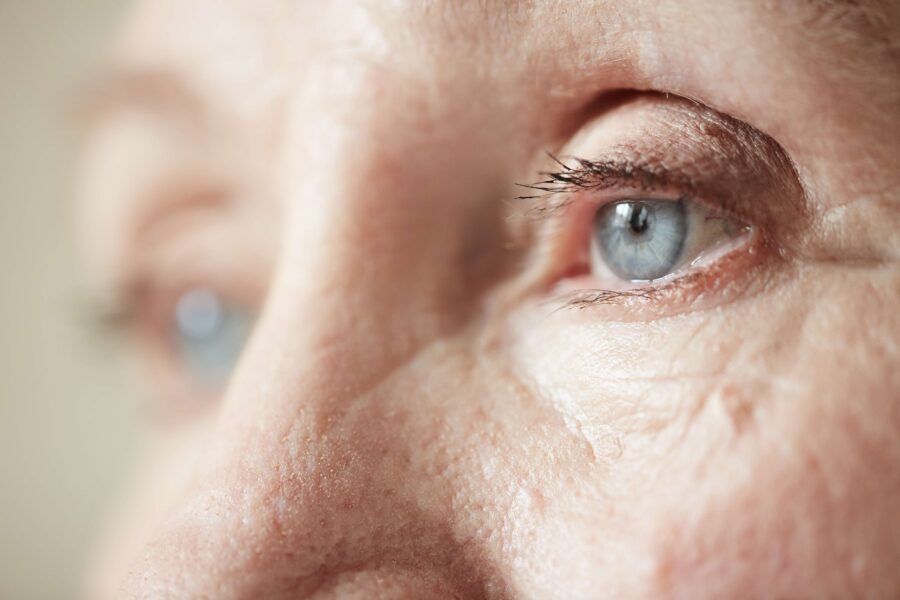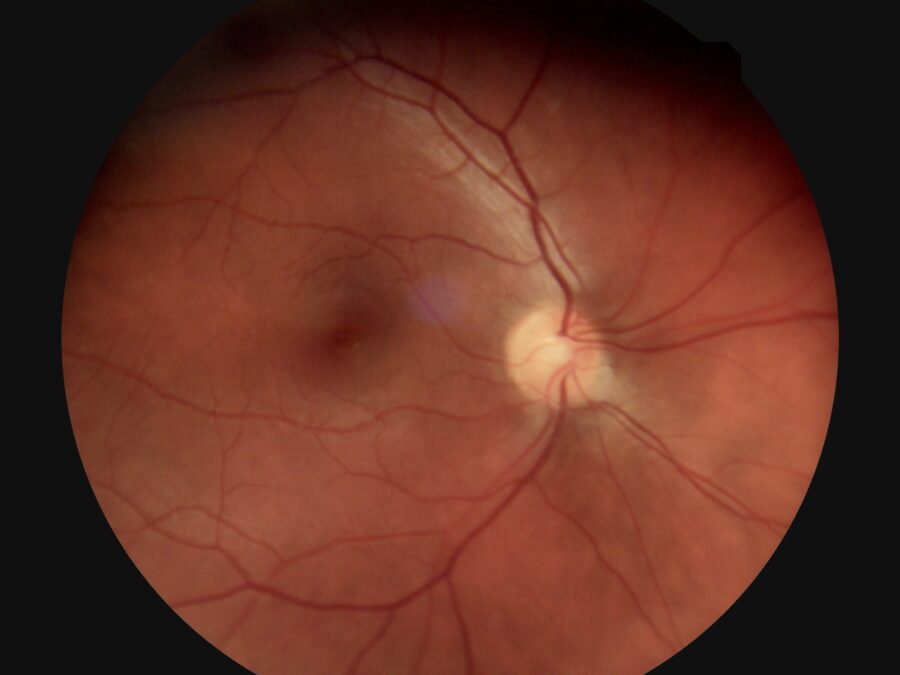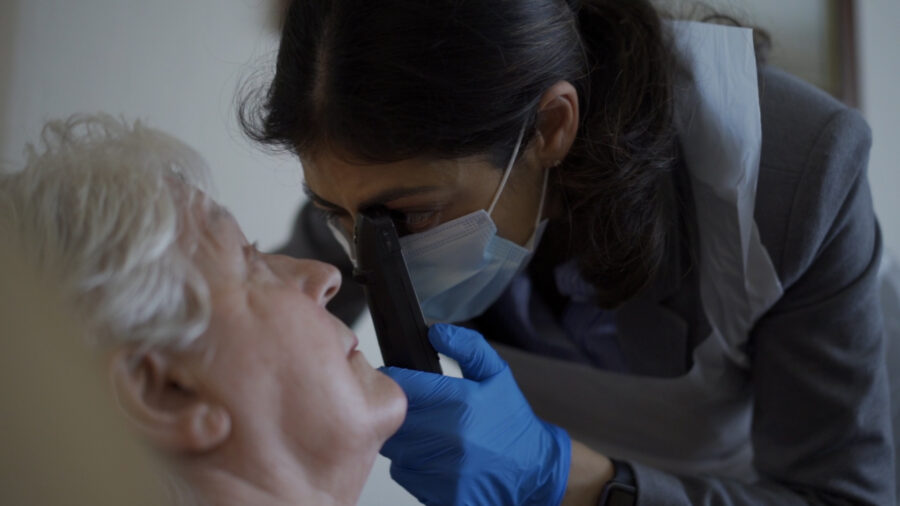Blog post
What Conditions Can an Eye Test Detect?

Matthew Burford BSc(Hons) Optometry MCOptom - Domiciliary Optician and Professional Services Manager at OutsideClinic
4 minute read time
Many people think an eye test only checks if you need glasses or not, but, eye tests offer much more than that.
What are the most common eye issues detected in an eye test?
The conditions our OutsideClinic opticians most commonly see during an eye test are:
With glaucoma for example, you will often not have any early symptoms. This means that the only way to diagnose it is by having regular eye examinations.
With all of these conditions, they can worsen over time if left unmanaged. This is why early detection often means a better overall outcome, which is why we recommend regular eye tests to stay on top of your eye health and maintain your quality of life.

What other issues are detected in an eye test?
Did you know that the eyes are the only place in the body where we can see veins and arteries without invasive procedures? Using a digital retina camera, we are able to take a photo of the eye where we can see the arteries and veins.
Abnormalities in arteries and veins can tell us a lot about our overall health. This means that it’s not always just eye-related conditions that can be detected. An optician will be able to detect other systemic health conditions like:
- diabetes
- high blood pressure
- high cholesterol

Although it is much less common, an eye test can also detect things like:
- eye cancers
- brain tumours
- detached retinas
Please note, the conditions discussed in this article is not exhaustive. It is important to remember that if you have any concerns or notice any symptoms related to your eyes or overall health, it is crucial to consult with a healthcare professional.
What will happen if my optician detects one of these conditions?
At OutsideClinic, when our opticians detect any abnormalities or signs of underlying conditions, they give personalised, tailored advice and solutions to either treat or manage the condition.
This could be environmental or lifestyle changes, it could be wearing glasses, they may refer you to your GP or they may recommend surgical options for conditions like cataracts.
Our goal here at OutsideClinic is to make quality eye care accessible to all, and ultimately maintain and improve the quality of life of our patients, so we will work with you to find the best solution.

The power of early detection
It cannot be stressed enough that early detection of any issues usually leads to better outcomes. This is why it is generally recommended to get your eyes tested at least once every two years.

Are free or private home eye tests available near me?
OutsideClinic offers accessible and comprehensive eye tests conducted in the comfort of your own home. Our eye specialists are based all over the UK.
NHS funded at-home eye tests are available for eligible individuals who find it difficult to leave their home.
Check your eligibility for an NHS funded sight test at home
If you would prefer the convenience of an at-home eye test but you don't qualify for NHS funding, private home eye tests are available for £60.

By Matthew Burford BSc(Hons) Optometry MCOptom - Domiciliary Optician and Professional Services Manager at OutsideClinic Post last updated 4th November 2025
Matthew graduated from Aston University in 2004 with a degree in Optometry.



